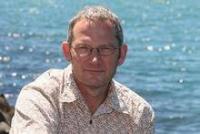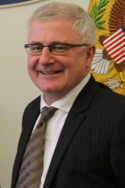[youtube]RInrvSjW90U[/youtube]
If you have a spare hour, this lecture is something not to miss. Kevin Anderson, professor of energy and climate change at the University of Manchester gives this year’s University of Bristol Cabot Institute Annual Lecture, and rips into the comfortable assumption that limiting warming to two degrees is still possible. Can we stay within the “guardrail”? Only if you make a series of heroically unlikely assumptions, Anderson suggests. As we head into the Doha COP18 negotiations, this lecture provides a valuable antidote to the rose-tinted spectacles habitually worn by politicians — and, as Anderson points out — many scientists.

 I have been listening to a lecture by Victoria University climate scientist, James Renwick, who has recently moved to the university from his post as principal climate scientist at NIWA. In the seminar he sets out in broad terms some of the latest developments in the science. It’s a very clear summation, with some recent interesting graphs and charts, showing the direction which in which climate change is continuing to move. Needless to say there’s no change in direction apparent. I recommend
I have been listening to a lecture by Victoria University climate scientist, James Renwick, who has recently moved to the university from his post as principal climate scientist at NIWA. In the seminar he sets out in broad terms some of the latest developments in the science. It’s a very clear summation, with some recent interesting graphs and charts, showing the direction which in which climate change is continuing to move. Needless to say there’s no change in direction apparent. I recommend  The
The  Tim Groser, the new Minister for Climate Change Issues, is adamant in his defence of the intention to further delay bringing the agricultural sector into the Emissions Trading Scheme beyond the current date of 2015 unless there are adequate abatement options open to them by then and unless other countries step up to the mark with mitigation measures. His remarks
Tim Groser, the new Minister for Climate Change Issues, is adamant in his defence of the intention to further delay bringing the agricultural sector into the Emissions Trading Scheme beyond the current date of 2015 unless there are adequate abatement options open to them by then and unless other countries step up to the mark with mitigation measures. His remarks